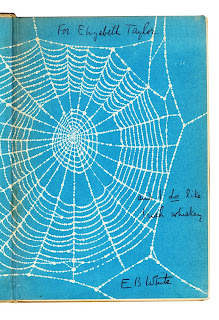 |
| Kerry's company Hulafrog offers flexible work |
This magazine, in a cover article by Lisa Belkin, called the phenomenon of their leaving work the “Opt-Out Revolution,” and other coverage followed: a Time magazine cover story on “The Case for Staying Home” and a “60 Minutes” segment devoted to a group of former mega-achievers who were, as the anchor Lesley Stahl put it, “giving up money, success and big futures” to be home with their children.
At the time, these women attracted criticism for turning their back on feminism. Now - shock, horror - some of these same mega-achievers are looking to get back into the job market. A few working mothers have pointed the finger and said, I told you so. To me this overlooks an obvious point: these women have been out for 10 years. Now their children have grown up and become less dependent. The time is ripe for a return to work. I doubt any of them would have ruled out a resumption of their careers when they decided 10 years ago to look after their children.
This chop-and-change approach goes against the prevailing trend of 'leaning in'. Sheryl Sandberg's much-publicised book, Lean In: Women, Work, and the Will to Lead, argues that women are unconsciously compromising their career goals, even before they have children:
In addition to the exterior barriers erected by society, women are hindered by barriers that exist within ourselves. We hold ourselves back in ways both big and small, by lacking self-confidence, by not raising our hands, and by pulling back when we should be leaning in... We lower our expectations of what we can achieve.It is a powerful message, exhorting women to try harder in their careers, but as Hulafrog's survey demonstrates, there are many more women who would prefer a middle way between "opting out" and "leaning in".
The founders of Hulafrog - Kerry, chief publisher, and CEO Sherry Lombardi - passionately believe there are not enough flexible opportunities for women. This is what motivated them to go to their parent subscribers and ask about the "age-old issue that haunts moms from pre-school pick-up lines to corporate boardrooms: work full-time or stay at home with the kids?" They were overwhelmed by the response.
Among other things, they discovered that a staggering 57% of stay-at-home moms would have continued to work if they had been offered the ability to work from home. "Think of what our workforce is missing," says Kerry. "All the educated, professional women who are sitting on the sidelines because they haven't been able to find the flexibility they need." (See my previous post on this untapped workforce.)
The debate surrounding women, work and children will always be emotive, depending on which side of the fence you sit. However, in a modern age we should strive for an ideal that suits all types, including the option of flexible work hours or working from home. Employers need to sit up and take notice. More than 2,000 women have spoken. Have a look at Hulafrog's Infographic on the subject and see for yourself.
Further links
Hulafrog's press release on the survey
Lisa Belkin's NY Times feature on opting out
Judith Warner's NY Times feature on opting back in
Lisa Belkin's recent article in The Huffington Post
Comments on Facebook
------------------------------------------------------------------------
"I absolutely loved this book and will miss the family that I became so involved with over the past few days. I hope Emma has another book in the pipeline!"
-- Annabel at CountryWives
-- Annabel at CountryWives
I welcome reviews of my book on Amazon!








